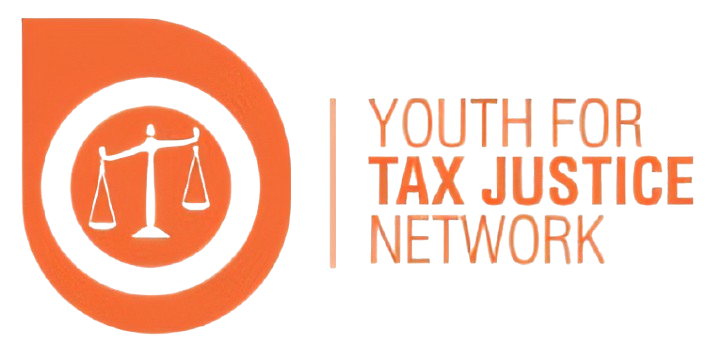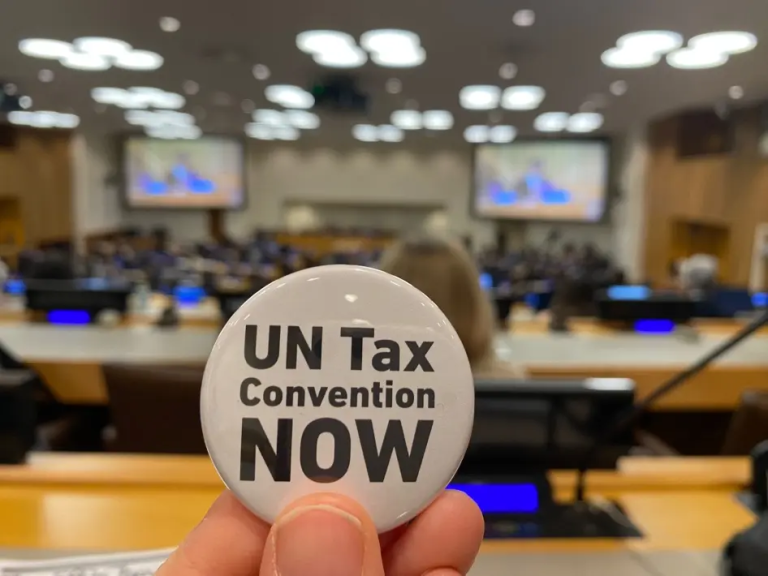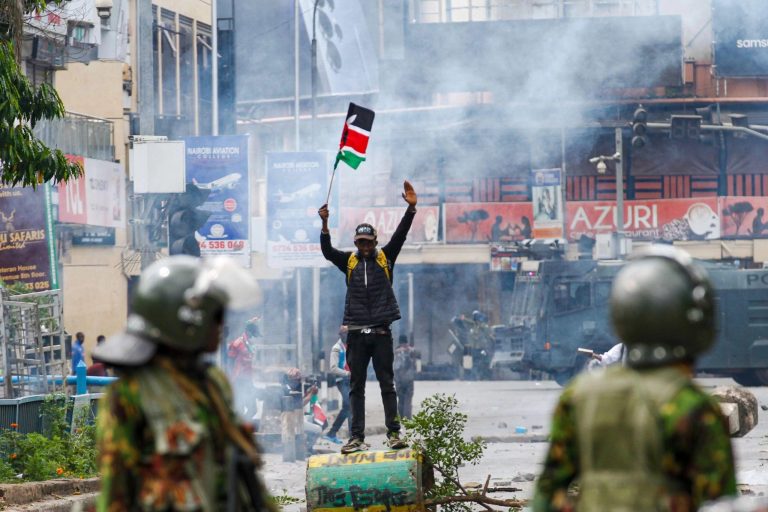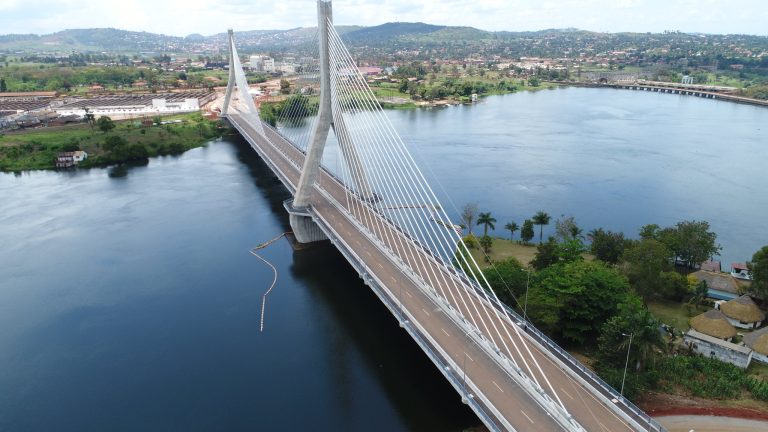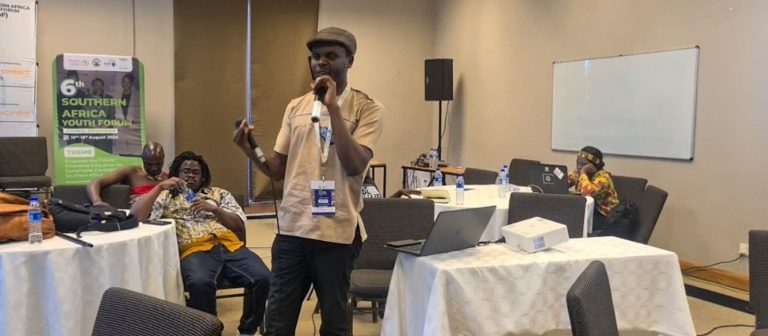This thought piece breaks down what DRM really is, why it matters for youth, and how we, young people across Africa, Europe, and the world, can demand tax systems that are accountable, equitable, and just.
By Allan Murangira & Lurit Yugusuk.
When did you last feel the cost of a broken financial system? Maybe it’s the silence when your school can no longer afford teachers. The static when mobile data runs out before your job application goes through. Maybe it is in the quiet abandonment of a youth center that once promised safety, skills, and hope for the youth in the community. Perhaps it was hearing yet another story of billions lost to corruption, and realizing that there would be no justice, no explanation, no accountability.
These aren’t isolated frustrations. They are the real and recurring costs of broken public finance systems. Systems that decide how our governments raise money, how they manage and allocate it, and how they spend it. Systems that shape whether your community thrives or collapses under the weight of neglect. This is what’s known as Domestic Resource Mobilization (DRM); a term often buried under technocratic jargon, but one that directly determines whether young people have access to decent jobs, healthcare, transport, digital inclusion, and climate-ready futures.
And yet, DRM is rarely discussed in ways that include us: the youth. We are not at the fiscal decision-making table. We are not consulted when taxes go up or when budgets are slashed. But we are always the ones paying the price. From consumption taxes that hit our pockets hardest, to public debt that mortgages our future, the failures in how governments collect and spend money are not just policy issues. They are justice issues. And the consequences are lost opportunities, inequality, intergenerational debt, and shrinking democratic space, are not theoretical. They are lived, daily realities for millions of young people across Africa, Europe, and beyond.
It’s time to ask deeper questions: Who decides how public money is raised and spent? Why are the richest often taxed the least, while young and low-income communities shoulder the burden? Why is transparency optional in systems that shape all of our lives?
What is Domestic Resource Mobilization, and Where is the Money going?
DRM is the process through which governments raise money internally, primarily through taxes. This includes income tax, corporate tax, value-added tax (VAT), levies on goods and services, royalties from natural resources, and user fees for things like health and education, among others. But DRM isn’t just about raising funds. It’s about how that money is raised, who bears the greatest burden, and how fairly it is spent. When DRM functions as it should, it becomes a tool for justice and equity. It funds schools, hospitals, youth programs, climate resilience, and even public transport. Even better, it builds opportunity and distributes it more equally. But when DRM fails, when it is regressive, opaque, or poorly managed, it becomes a tool of exclusion. It feeds corruption, widens inequality, and locks young people out of economic progress and political participation.
And here’s the hard truth: a lot of public money never gets to where it’s supposed to go.
According to a 2021 UNCTAD report, Africa alone loses over $88.6 billion every year to illicit financial flows. These are profits siphoned off or hidden by multinational corporations through tax avoidance, trade mispricing, and profit shifting, all done legally, but unjustly. Add in the costs of corruption, and the continent’s financial hemorrhage rises to between $50 billion and $140 billion annually, roughly equal to the GDP of about 43 out of 48 African countries African countries. At the same time, tax systems remain deeply unjust. While large corporations secure tax exemptions and holidays, young and low-income citizens are disproportionately taxed through VAT, levies on digital transactions, mobile money fees, and indirect taxes on everyday goods. These are not just financial costs; they are the price of exclusion, of inequality baked into policy.
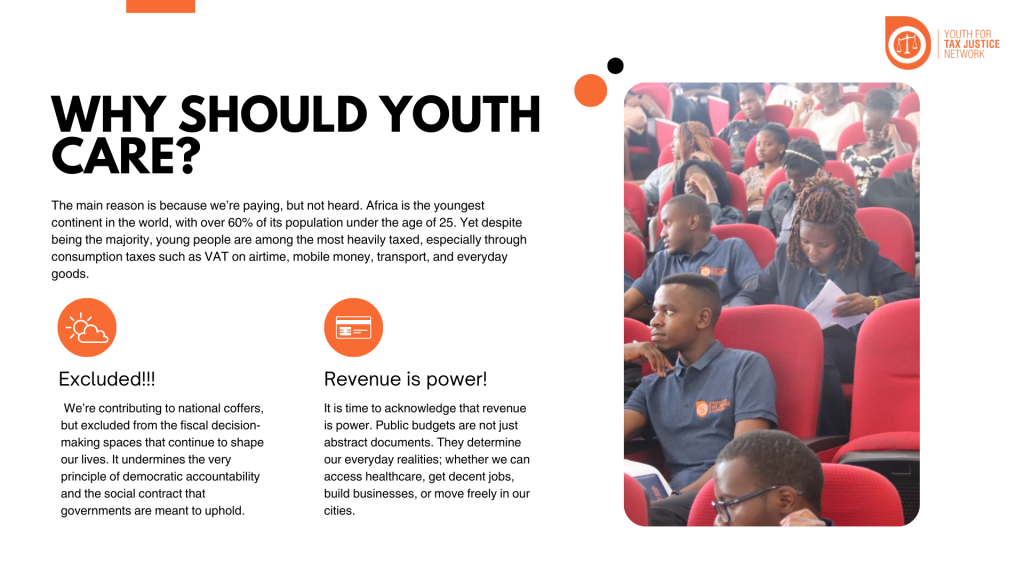
Why then Should Youth Care?
The main reason is because we’re paying, but not heard. Africa is the youngest continent in the world, with over 60% of its population under the age of 25. Yet despite being the majority, young people are among the most heavily taxed, especially through consumption taxes such as VAT on airtime, mobile money, transport, and everyday goods.
Secondly, this system is a symbol of taxation without representation. We’re contributing to national coffers, but excluded from the fiscal decision-making spaces that continue to shape our lives. It undermines the very principle of democratic accountability and the social contract that governments are meant to uphold.
Thirdly, it is time to acknowledge that revenue is power. Public budgets are not just abstract documents. They determine our everyday realities; whether we can access healthcare, get decent jobs, build businesses, or move freely in our cities. When governments fail to raise money fairly or progressively, they resort to borrowing. And the debt they take on? That burden falls squarely on our future.
Lastly, youth should care because corruption is a tax on our lives. Every dollar lost to corruption or illicit financial flows is a missed investment in our potential. It’s a school never built. A start-up grant never awarded. A youth climate hub never launched. A future delayed, or even denied.
What Does a Youth-Centered Tax System Look Like, and How Are We Building It?
A truly just tax system is one that centers youth, not just as taxpayers, but as changemakers. It is reflective of the needs, voices, and realities of youth. It is:
- Progressive, backed by the fact that those with more wealth and power contribute more.That means taxing wealth, capital gains, and multinational tech giants fairly, while easing the burden on low-income youth and informal workers who already bear the brunt of consumption taxes.
- Participatory, anchored on the fact that youth are not bystanders in budgeting. Youth should be at the table, co-designing public finance systems. Think youth parliaments for budget oversight, participatory audits, fiscal hackathons, and open budget platforms where young people can track, question, and influence spending decisions.
- Purposeful, under a system where revenue isn’t just collected, it is channeled to empower youth. That means investments in education, green jobs, mental health, transport, and digital innovation.
This vision is already in motion with young people across the continent and the globe rising to demand tax justice. In Kenya, Gen Z mobilized to reject the Finance Bill 2024, and through their protests (both online and in the streets), led to the withdrawal of the bill and widespread dialogue on tax justice. In Uganda, student unions opposed regressive mobile money taxes, securing a reduction from 1.5% to 0.5%. Youth also used digital platforms to expose corruption, catalyzing anti-graft responses. Across Europe, youth-led organizations are also holding governments and corporations accountable, demanding corporate tax transparency and fairness. In Eastern and Southern Africa, the Youth for Tax Justice Network (YTJN) is uniting young people behind fair taxation, asset recovery and climate-linked DRM. Our advocacy has already influenced progressive reforms, including the enactment of beneficial ownership laws in Uganda. This is what youth-powered fiscal justice looks like: visionary, participatory, and urgent.
FfD4: A Watershed Moment to Speak, Shape, and Shift
The Fourth International Conference on Financing for Development (FfD4) is more than a high-level policy summit, it is an opportunity to reshape the global financial system. And for young people across Africa and the world, it is a crucial moment to show up, speak out, and shift the status quo. Here’s how young people can show up and join us as we advance better fiscal systems:
Leverage digital and create power. Young people can lead bold, visible campaigns that spotlight the urgency of Domestic Resource Mobilization (DRM). Through short videos, infographics, podcasts, and memes, we can explain DRM in accessible ways, connecting it to everyday concerns like the cost of education, health access, climate resilience, and job creation. Campaigns can also highlight global injustices, such as the $4 trillion SDG financing gap, and demand intergenerational justice, youth participation, and inclusive DRM reform.
Propose Real Tools for Transparency and Accountability. It’s not enough to demand change, we too must design it. Youth can champion tech-enabled transparency tools like national budget dashboards, SMS-based citizen reporting platforms, and youth-led social audits. We can hold governments accountable by pushing for the full implementation of Auditor General recommendations and budget oversight reforms.
Build Global Solidarity. Before us, is a moment that calls for cross-border alliances. Youth must work together across continents to demand multinational tax reform, corporate transparency, and the recovery of stolen assets. We can unite to call for fair debt relief mechanisms that prioritize health and education, not austerity. At the continental level, African coalitions must apply coordinated pressure on global actors, especially those in Europe and North America, to support the establishment of a United Nations Framework Convention on Tax and a UN Convention on Sovereign Debt.
Take Up Space Unapologetically. Whether it’s on expert panels, in negotiation rooms, or in peaceful street protests, youth voices must not be sidelined. We must be present, not as tokens, but as strategists, visionaries, and decision-makers. The conversation on global finance must reflect the people it impacts most. We belong at the center.
At its core, this isn’t just about spreadsheets or budget lines. It’s about power, dignity, and fairness. Who pays? Who decides? Who benefits? These are moral questions and they define the social contract between governments and their people. For youth, DRM is not just an economic issue, it’s a justice issue. It is about building a world where public money works for people, not profits. Where taxes fund futures, not elite luxuries. Where every dollar is a tool for equality, not exclusion.
As we head into FfD4, one message must be clear: We are not just the future or leaders of tomorrow. We are the fiscal voice of now and we too should be involved.
We’re not just calling for a better system. We’re building it. One reform, one voice, one young person at a time. #FfD4 is a chance for the youth to rewrite the rules as co-authors of a fairer financial future, and no longer as observers. We invite young people to join us as we champion tax justice in Africa and beyond. Look out for our upcoming blogs to interact with more financing for development issues.
